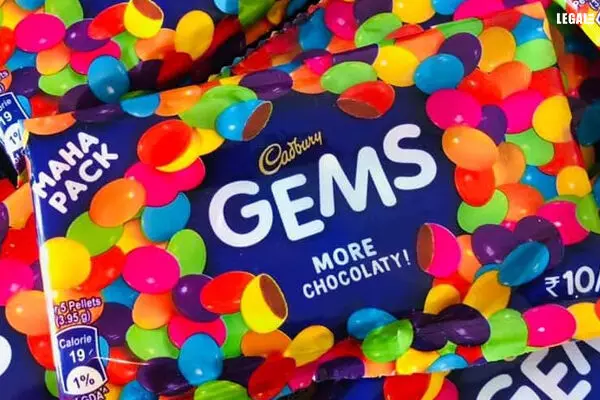- Home
- News
- Articles+
- Aerospace
- Artificial Intelligence
- Agriculture
- Alternate Dispute Resolution
- Arbitration & Mediation
- Banking and Finance
- Bankruptcy
- Book Review
- Bribery & Corruption
- Commercial Litigation
- Competition Law
- Conference Reports
- Consumer Products
- Contract
- Corporate Governance
- Corporate Law
- Covid-19
- Cryptocurrency
- Cybersecurity
- Data Protection
- Defence
- Digital Economy
- E-commerce
- Employment Law
- Energy and Natural Resources
- Entertainment and Sports Law
- Environmental Law
- Environmental, Social, and Governance
- Foreign Direct Investment
- Food and Beverage
- Gaming
- Health Care
- IBC Diaries
- In Focus
- Inclusion & Diversity
- Insurance Law
- Intellectual Property
- International Law
- IP & Tech Era
- Know the Law
- Labour Laws
- Law & Policy and Regulation
- Litigation
- Litigation Funding
- Manufacturing
- Mergers & Acquisitions
- NFTs
- Privacy
- Private Equity
- Project Finance
- Real Estate
- Risk and Compliance
- Student Corner
- Take On Board
- Tax
- Technology Media and Telecom
- Tributes
- Viewpoint
- Zoom In
- Law Firms
- In-House
- Rankings
- E-Magazine
- Legal Era TV
- Events
- Middle East
- Africa
- News
- Articles
- Aerospace
- Artificial Intelligence
- Agriculture
- Alternate Dispute Resolution
- Arbitration & Mediation
- Banking and Finance
- Bankruptcy
- Book Review
- Bribery & Corruption
- Commercial Litigation
- Competition Law
- Conference Reports
- Consumer Products
- Contract
- Corporate Governance
- Corporate Law
- Covid-19
- Cryptocurrency
- Cybersecurity
- Data Protection
- Defence
- Digital Economy
- E-commerce
- Employment Law
- Energy and Natural Resources
- Entertainment and Sports Law
- Environmental Law
- Environmental, Social, and Governance
- Foreign Direct Investment
- Food and Beverage
- Gaming
- Health Care
- IBC Diaries
- In Focus
- Inclusion & Diversity
- Insurance Law
- Intellectual Property
- International Law
- IP & Tech Era
- Know the Law
- Labour Laws
- Law & Policy and Regulation
- Litigation
- Litigation Funding
- Manufacturing
- Mergers & Acquisitions
- NFTs
- Privacy
- Private Equity
- Project Finance
- Real Estate
- Risk and Compliance
- Student Corner
- Take On Board
- Tax
- Technology Media and Telecom
- Tributes
- Viewpoint
- Zoom In
- Law Firms
- In-House
- Rankings
- E-Magazine
- Legal Era TV
- Events
- Middle East
- Africa
Delhi High Court rules in favor of Cadbury over infringement of their trademark "GEMS"

Delhi High Court rules in favor of Cadbury over infringement of their trademark "GEMS"
The Delhi High Court in its recent order has passed permanent and mandatory injunction against a manufacturer namely Neeraj Food Products for infringing Cadbury's trademark 'GEMS' by using deceptively similar mark and packaging 'JAMES BOND', as used by Cadbury for promotion of their product.
The Court awarded actual cost of Rs.15,86,928 in favour of Cadbury, on the grounds that it had spent a substantial amount of money towards litigation in a suit wherein interim injunction was operating since 2007, including court fee, counsels' fees and miscellaneous expenses. Rs. 10 lakhs were awarded in damages.
The suit was filed by Mondelez India Foods Private Limited (formerly Cadbury India Ltd.) and Cadbury Schweppes Overseas Limited claiming ownership in the mark 'CADBURY GEMS' or 'GEMS'.
It was their case that the use of the impugned mark 'JAMES BOND' or 'JAMEY BOND' and the product packaging bearing the said mark by defendant infringed its registered trademark, its copyright registrations featuring the character 'JAMES BOND' and also constituted passing off.
The Court was of the prima facie opinion that the impugned packaging of the Defendant's product sold under the mark 'JAMES BOND' or 'JAMEY BOND' was clearly infringing of the Plaintiffs' rights in the mark 'CADBURY GEMS', as well as the copyright in respect of the products sold under the said mark.
It observed that Cadbury's GEMS product is popular and well recognized chocolate product in India and that almost everyone's childhood is associated with the consumption of the said product.
"The Defendant's packaging uses the mark 'JAMES BOND'/ 'JAMEY BOND' with the same blue/purple base and colorful button chocolates. The mark 'GEMS' is depicted in a brown background in the Plaintiff's product, so also, in the Defendant's products. The entire color scheme of the Defendant's product is identical to that of the Plaintiffs' label and packaging. The marks are also confusingly and deceptively similar," it added.
"The 'GEMS' product is also usually consumed by small children, both in urban and rural areas. The test in such a matter is not that of absolute confusion. Even likelihood of confusion is sufficient."
According to the Court, a mere comparison of the Defendant's infringing product and the packaging thereof leaves no manner of doubt that the same is a complete knock-off, of the Plaintiffs' 'CADBURY GEMS'. Moreover, due to the significant fact that these products are sold not only in bigger packs, but also in smaller pillow packs, the mark may not even be fully visible.
It added "Moreover, chocolates are sold not merely in big retail stores or outlets, but also, in road side shacks, paan shops, patri vendors, kirana stores and stalls outside schools, etc. Thus, there is an immense likelihood of confusion, particularly considering the class of consumers that the product is targeted at, that is, children."
The Court thus decreed the suit by ordering the Defendant to pay the costs and damages to Cadbury within three months, failing which it shall be permitted to seek execution of the decree or avail of its remedies, in accordance with law.



